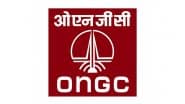Islamabad [Pakistan], May 21 (ANI): The spectre of a potential default looms large over Pakistan's already fragile economy as prospects for the revival of the International Monetary Fund (IMF) loan program fade, The Express Tribune reported.
The consequences of a default for Pakistan's economy would be dire with hyperinflation, devaluation of the Pakistani rupee, a near-halt in imports, the closure of more factories, an increase in unemployment and political and social unrest, as per the news report.
Also Read | Lion Attack: Zoo Owner in Slovakia Mauled to Dead by Lions at Feeding Time, Cops Find Body Parts at Scene.
Economic indications have already worsened, demonstrating the deepening crisis that Pakistan faces, according to The Express Tribune report. The local financial system, especially commercial banks, will face headwinds as they have already financed the Pakistan government in recent years.
Amid the economic crisis, Pakistan is expressing hope for support from friendly nations like China, Saudi Arabia, and the UAE. A report titled "Pakistan Economy: What if Pakistan defaults?" by Arif Habib Limited (AHL) Research's Economist Sana Tawfik has stated the considerable increase in Pakistan's default risk due to a lack of progress in Pakistan's negotiations with the IMF, as per the news report.
Moody's Investors Services has predicted that Pakistan without the IMF programme would default on its debt obligations after June 2023, as per the news report. According to the report, Pakistan's forex reserves are currently at USD 4.3 billion, and the country faces significant debt repayments until June 2024.
Pakistan still faces a shortfall of USD 5 billion in order to address the external debt servicing requirement of USD 27 billion in FY24. Pakistan has a total external debt servicing requirement of USD 73 billion over FY24-27, The Express Tribune reported.
Sovereign defaults often cause a contraction in Gross Domestic Product (GDP). The GDP of Sri Lanka contracted by 7.8 per cent after its default in 2022. The State Bank of Pakistan (SBP) announced that economic growth will be lower than previously projected, The Express Tribune reported.
According to some local research houses, Pakistan will face economic contraction before the possible default occurs. A default will make it challenging for Pakistan to import essential goods like petroleum, machinery and medicinal products, as per the news report.
Unemployment will likely increase, causing social unrest, and shortages of essential commodities will further increase the difficulties faced by the people in Pakistan, The Express Tribune reported. A post-default scenario will necessitate extensive debt restructuring for Pakistan, considering the huge debt servicing needs in the coming years.
Following Sri Lanka's example, Pakistan would be required to hold negotiations with China, other bilateral creditors and the Paris Club to set up a restructuring plan. Pakistan will then need to undertake a new long-term IMF program to achieve macroeconomic stability. (ANI)
(This is an unedited and auto-generated story from Syndicated News feed, LatestLY Staff may not have modified or edited the content body)













 Quickly
Quickly

















